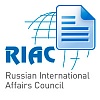Wolfgang Schȕssel: Perceptions of businessmen and public opinion in Russia and Europe are significantly different
In
Login if you are already registered
(no votes) |
(0 votes) |
Dr. Wolfgang Schȕssel, Federal Chancellor of Austria (2000 – 2007), talks about the Russian initiative for the “Partnership for Modernization”, and the current problems of Russian-European cooperation. The interview was conducted on the sidelines of international conference: “Russia and the European Union: partnership and its potential” organized by RIAC.
- Mr. Schȕssel, how do you assess the Russian initiative of Partnership for Modernization?
- I think it is an excellent idea. The problem is that there was a goodstarting point, but then the process slowed down a bit. I think the idea is perfect and would fit extremely well into the pattern of partnership between Europe and Russia, because as I said today in my remarks, I think the keyword for growth, both in Russia and Europe, is innovation. And innovation is defacto much more than modernization, because modernization is more or less a continuous process, step-by-step, slow, and gradual, but innovation could be much more. It could be a radical change in technology, in procedures, in thinking, in mentality, and in the quality of cooperation. And I think, that is to say, “innovation” can become a magic word for the future of Russian-European relations. We both are aging societies, a bit keen to preserve the statusquo, a bit too concentrated on how to ensurestability, to maintainlaw and order, and to keep things going as they are, but what we need is an additional kick, fresh wind, new faces, new ideas, andthings we can do together. I think therefore that modernization and especially innovation can be excellent starting points.
- What are the problems that hamper Russian social, economic and political modernization, as you see them?
- Well not only for Russia, but also for the Europe, the impediment is mentality. Both countries, well Europe is not a country, both continents (for me Russia is also a continent), although we are living on the same continent, we have a very difficult past. Both our societies are a bit too much bound and linked with history, with historic experiences: the Cold War, expropriation, alienation, and loss of sovereignty. All of these things are deeply engraved in our collective memory. This is the same in Russia, the same in Europe – in Germany, in France, in Italy, in Austria, and wherever. And I thinkthis slows down modernization or the pace of innovation a little bit.
- As an experienced politician you are probably aware of what European businessmen think about doing business in Russia. Are they interested in such an initiative of partnership for modernization and the overall Russian modernization?
- Absolutely. I think there are significant differences in the perceptions of businessmen and public opinion in Russia, as well as in Europe. The business communities on both sides trust each other, and they have extremely dynamic connections. Anatoly Chubaissaid today, that overthe past 10 years, trade between Russia and Europe has quadrupled. Includingthe new members of the European Union this is five times higher than in the past. So there are enormous and dynamic investments, trade, flow of technology and knowledge, whatever.
In the political sphere, it’s completely different. There is a lot of distrust, a lot of reluctance, not only among politicians, but also in public opinion. If you read Russian newspapers, or if you listen to important Russian lawmakers or Duma members, the impression is that we are alien to oneanother, what they are taking about, we are not made of the same stuff, that Russia has to look to the East, to Asia, that there is the future. The same happenson the European side:mass media, boulevard media, and some members in national parliaments, even the European Parliament, say that Russia is moving backwards, Russia is not going in the right direction. So there is a lot of collective distrust, but not on all levels. It was extremely interesting to listen today to Prime Minister Medvedev’s confession that Russia will always be a European country and Mr. Barroso’s commitments that overthe next year, he will end his tenyear tenure, and that he is committed to end it with a new agreement with Russia. So this disagreement is not on all levels, there is a tendency of distrust, mistrust, impediments, and storms on the common path, etc.
So the question is how can we bring the intentions, the mentality of the business communities, and the atmosphere of business between Europe and Russia onto the political scene, and on the other hand – how can we revive, so to say, the political leadership in negotiations between EU and Russia. This is the main challenge. Honestly, I am quite optimistic, because there is no alternative, because if you look to the borders of Russia – South, East and West, I mean the Western border towards Europe is the most peaceful, calm and open border Russia has. So if you compare it with the South, if you compare it with Asia, I mean – make a choice. And the same is for Europe. If we do not cooperate with Russia, both societies will end up not in the first league of political actors, but in the second class of the global players. There will be no G20 or G8, there will be the G2, led by the US and China, and Russia and Europe will de facto sit in the second row applauding or criticizing, whatever. This is not my preference. I am quite optimistic that if we understand the real challenge, the next 10 years are decisive: either we cooperate and create common a vision, or we will end up in the second class of global players.
Interviewer: Vladimir Morozov, RIAC program coordinator
(no votes) |
(0 votes) |




